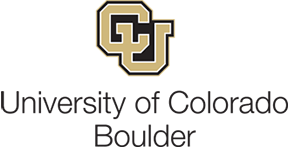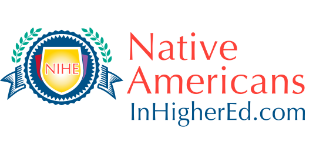Job Details
This ad is expired.

- CIRES / NCEI Plasma and Energetic Particles Space Scientist
- Go to our website »

CIRES / NCEI Plasma and Energetic Particles Space Scientist
Requisition Number: 60132
Location: Boulder Colorado
Employment Type: Research Faculty
Schedule: Full Time
Posting Close Date: 02-Dec-2024
Date Posted:
Job Summary
The Cooperative Institute for Research in Environmental Sciences (CIRES) at the University of Colorado at Boulder has an immediate opening for a Research Associate supporting NOAA's National Centers for Environmental Information (NCEI). This role is for a Plasma and Energetic Particles Space Scientist in NCEI's Solar and Terrestrial Physics (STP) Group. The STP group works to ensure that current and future space weather sensors on NOAA satellites provide effective operational products for use by the NOAA National Weather Service (NWS) Space Weather Prediction Center (SWPC). STP's overall responsibilities also include providing spacecraft engineers and the scientific community access to NOAA's space environment data. The Plasma and Energetic Particles Space Scientist will be primarily responsible for ensuring the quality and availability of data from the solar wind plasma and solar energetic particle instruments operated on-board NOAA's SWFO-L1 and L1a satellites.
As a scientific and technical interface for STP to the NASA-NOAA satellite programs, the Plasma and Energetic Particle Space Scientist works with the programs to ensure that the particle measurements, and the products derived from these measurements, meet the needs of NOAA and the broader space science community. The SWFO-L1 and L1a series are NOAA's newest generation of L1 satellites, which include a complement of space weather sensors that monitor the sun. The SWFO-L1 satellite is scheduled for launch in March 2025. SWFO-L1 calibration/validation planning activities are ongoing.
The University of Colorado Boulder is committed to building a culturally diverse community of faculty, staff, and students dedicated to contributing to an inclusive campus environment. We are an Equal Opportunity employer, including veterans and individuals with disabilities.
Who We Are
At CIRES, more than 950 environmental science professionals work to understand the dynamic Earth system, including people's relationship with the planet. CIRES has partnered with NOAA since 1967, and our areas of expertise include weather and climate, changes at Earth's poles, air quality and atmospheric chemistry, water resources, solid Earth sciences, and more. Our vision is to be instrumental in ensuring a sustainable future environment by advancing scientific and societal understanding of the Earth system.
The NCEI STP space weather team is responsible for oversight of the NOAA space weather sensors on several satellite constellations, including GOES, DSCOVR, and SWFO. These missions provide data critical for the NOAA National Weather Service (NWS) Space Weather Prediction Center (SWPC) efforts to protect life and property, as well as to the broader scientific community. The space weather team's responsibilities include calibration and validation of space weather measurements and data products, development of scientific processing algorithms used in real time to produce data for forecasters, development of retrospective algorithms to create scientifically authoritative (best') products, and prototyping real-time processing systems.
What Your Key Responsibilities Will Be
- Develop, implement, and complete calibration/validation activities for NOAA's space-based particle sensors and their ground processing algorithms (20%)
- Diagnose particle detector and ground processing anomalies, and develop and implement corrections for anomalies (20%)
- Work with SWPC on development of particle data ground processing algorithms and assist with implementation and testing of these algorithms (20%)
- Support NOAA-NASA satellite program pre-launch activities, early-orbit tests and evaluation, and long-term sensor performance sustainment; includes, supporting science and technical exchanges, reviewing technical documentation, and presenting oral and written status reports to program management (20%)
- Present observations and science results from NOAA's space-based particle detectors at national and international scientific meetings and in peer-reviewed publications (15%)
- Become a leading expert on NOAA's space-based particle detector data and provide technical support to SWPC and the broader space science community (5%)
- More senior research scientist hires will also be asked to independently perform one/more of the following tasks:
- Become NCEI's lead instrument scientist for one or more particle detectors on-board NOAA's upcoming Lagrange-1 missions
- Serve as a liaison to NASA spacecraft program management and instrument vendors, advocating for the quality of NOAA's space weather data
- Manage data analyst and software development team members and oversee creation of NCEI's public datasets
- Propose, supervise and perform independent research
What You Should Know
- Due to the requirement to access export-controlled data/information, only U.S. citizens, lawful permanent residents (green cards), or other protected individuals (i.e., persons designated as an asylum, refugee, or a temporary resident under amnesty provisions) may apply.
- This position will require some domestic travel in the frequency of 1-2 trips per year.
- If selected as the finalist, you will be required to successfully complete a federal background clearance process for site access.
- This position will be rostered in CIRES at the University of Colorado Boulder, but will be physically situated in the David Skaggs Research Center, 325 Broadway, Boulder, CO 80305
What We Can Offer
- CIRES can offer a generous compensation package.
- The annual hiring salary range for this position is $80,000 - $134,000.
- Salary is commensurate with education and experience and determined based on our CIRES internal career track classification.
- Some relocation funds are available for this role following CIRES/the University of Colorado's relocation processes and procedures.
- This position can accommodate a hybrid work modality.
- CIRES and the University of Colorado Boulder offer a robust training curriculum, opportunities for professional development and a Mentorship Program.
- Boulder is a vibrant community with access to mountain parks, dog parks, miles of trails, rivers, lakes, cafes, restaurants, boutiques, theaters, museums, and sports venues. Boulder was recently ranked as one of the top places to live in the U.S. by U.S. News.
- As an employee at CU Boulder, you receive a pass allowing free access to the regional public transit system, which is an outstanding network of buses and light rail systems that provide service within Boulder and connect to Denver, the Denver airport, and surrounding communities.
Benefits
The University of Colorado offers excellent benefits, including medical, dental, retirement, paid time off, tuition benefit and ECO Pass. The University of Colorado Boulder is one of the largest employers in Boulder County and offers an inspiring higher education environment. Learn more about the University of Colorado Boulder.
Be Statements
Be game-changing. Be visionary. Be Boulder.
What We Require
- Ph.D. in Physical Science, Engineering or similar technical field.
- At least three years' postdoctoral experience in satellite sensor design, algorithm development, and/or scientific research with space environmental data.
- Due to the requirement to access export-controlled data and information, only U.S. citizens, lawful permanent residents (green cards), or other protected individuals (i.e., persons designated as an asylee, refugee, or a temporary resident under amnesty provisions) may apply to this position.
What You Will Need
- Strong algorithm development skills and proficiency in one or more high-level programming languages such as Python, MATLAB, IDL and Linux/Unix shell.
- Ability to conduct scientific research in space physics as an individual researcher or as a part of a larger research team.
- Excellent oral/written communication skills and capacity for working in a team environment.
- Willingness to make short-term trips to NASA GSFC, NOAA-NSOF and instrument vendor facilities for technical meetings and/or pre-and post-launch activities.
- A proactive attitude combined with the ability to work with multiple organizations in order to meet NOAA's requirements.
Special Instructions
To apply, please submit the following materials:
- Resume or CV.
- Cover letter addressed to the Search Committee briefly describing your qualifications, professional goals, and specific interest in this position.
- Although not required at the time of application, please be ready to offer contact information for 3 professional references who can be contacted on your behalf if you are identified as a finalist for this role. At least one of those references will be asked to write a letter of recommendation for you in support of your application.
If you are selected as the finalist, your degree will be verified by the CU Boulder Campus Human Resources department using an approved online vendor. If your degree was obtained outside of the United States, please submit a translated version (if applicable) as an optional attachment.
The position will close December 2, 2024.
Note: Application materials will not be accepted via email. For consideration, applications must be submitted through CU Boulder Jobs.
In compliance with the Colorado Job Application Fairness Act, in any materials you submit, you may redact or remove age-identifying information such as age, date of birth, or dates of school attendance or graduation. You will not be penalized for redacting or removing this information.
To apply, visit https://jobs.colorado.edu/jobs/JobDetail/CIRES-NCEI-Plasma-and-Energetic-Particles-Space-Scientist/60132
Copyright 2024 Jobelephant.com Inc. All rights reserved.
Posted by the FREE value-added recruitment advertising agency
jeid-2e9aa1794e66c148b9259ed64f108a77


